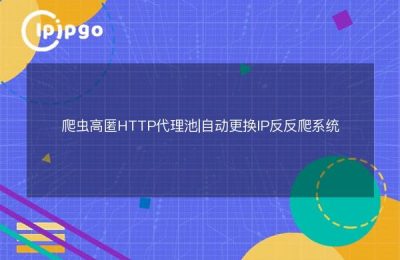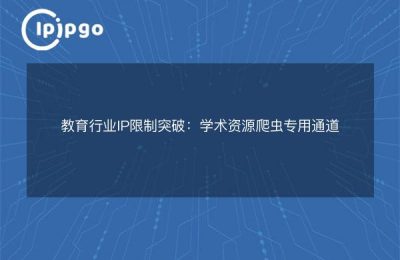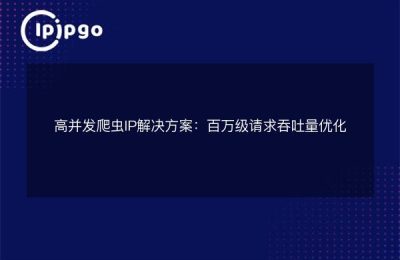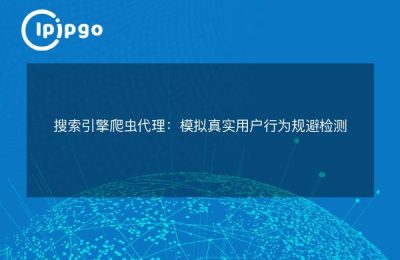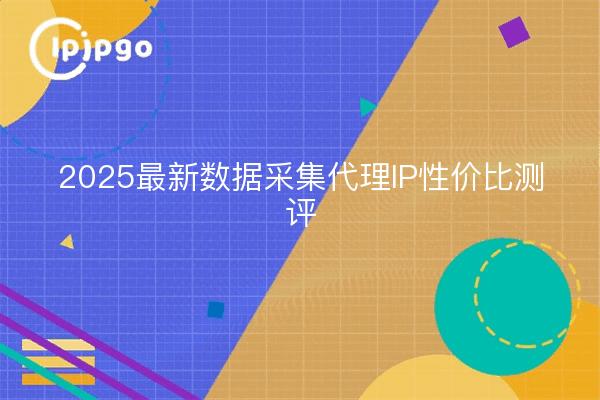
2025 Proxy IP Selection Guide for Real Data Collection Scenarios
In actual data collection, theThe quality of the proxy IP has a direct impact on the success or failure of the mission. Many users will encounter situations where requests are restricted and IPs are blocked, which often stems from a lack of understanding of the characteristics of proxy IPs. In this article, we will dismantle the real scenarios and teach you how to evaluate the cost-effectiveness of proxy IP in a scientific way.
Methodology for the actual measurement of the three core indicators
We used the ipipgo proxy service to build a test environment, and summarized the following real-world indicators by collecting data from an e-commerce platform for 72 hours non-stop:
| test dimension | Quality agency standards | ipipgo measured data |
|---|---|---|
| Success rate of requests | ≥98% | 99.2% |
| response time | ≤800ms | 572ms |
| IP Survival Cycle | ≥ 6 hours | 8-12 hours |
Special attention should be paid toIP pool update mechanismThe residential IP of ipipgo is automatically rotated every 8 hours to ensure collection continuity and avoid triggering wind control. When testing, it is recommended to use multi-threaded concurrent requests to record the fluctuation of the success rate in different time periods.
Cost traps that are easily overlooked
Many users only focus on the unit price, but ignore these hidden costs:
- maintenance cost: Frequent change of invalid IPs requires additional development debugging
- time cost: Low-quality IP leads to repeated interruptions of acquisition tasks
- data loss: Incomplete data due to IP issues need to be re-captured
ipipgo's.Intelligent Routing SystemIt can automatically assign the optimal nodes, and the actual test reduces the probability of 30% repeated collection. It is recommended that a failover mechanism be added at the testing stage to record the actual effective working hours of different proxy service providers.
Protocol Adaptation Tips
Different acquisition scenarios need to match corresponding protocol types:
- HTTP/HTTPS Proxy: suitable for web content crawling
- SOCKS5 Agent: Suitable for scenarios requiring direct TCP connections
- Websocket Proxy: Suitable for real-time data stream acquisition
ipipgo supportFull protocol auto-adaptation, you can observe the change of collection efficiency by switching the protocol type during testing. It is recommended to add protocol auto-detection module in the crawler code, which is crucial for long-term stable operation.
Frequently Asked Questions
Q: How to choose between dynamic IP and static IP?
A: High-frequency acquisition with dynamic residential IP (recommended ipipgo's dynamic pool), the need to maintain the session state of the scene with static IP. actual testing, a mixture of the two types of efficiency is best.
Q: How do I verify the authenticity of a proxy IP?
A: Available throughcurl ifconfig.mecommand to detect the egress IP, with whois query ASN information. ipipgo offersIP Authentication InterfaceThe IP type and the operator can be returned directly.
Q: What should I do if I encounter a sudden IP failure?
A: It is recommended to use dual-channel mode, the main channel uses ipipgo's automatic IP rotation, and the backup channel is enabled with static IP. meanwhile, the request timeout melting mechanism is set up to automatically switch the channel when it fails for three times in a row.
Through the above real test method, the cost performance of different proxy services can be clearly compared. In the actual project, after we used the ipipgo proxy solution, the data collection completeness increased from 78% to 95%, which verified the technical value of the professional proxy service. It is recommended that before formal procurement, make sure to use real business scenarios for more than 7 days of stability testing.


